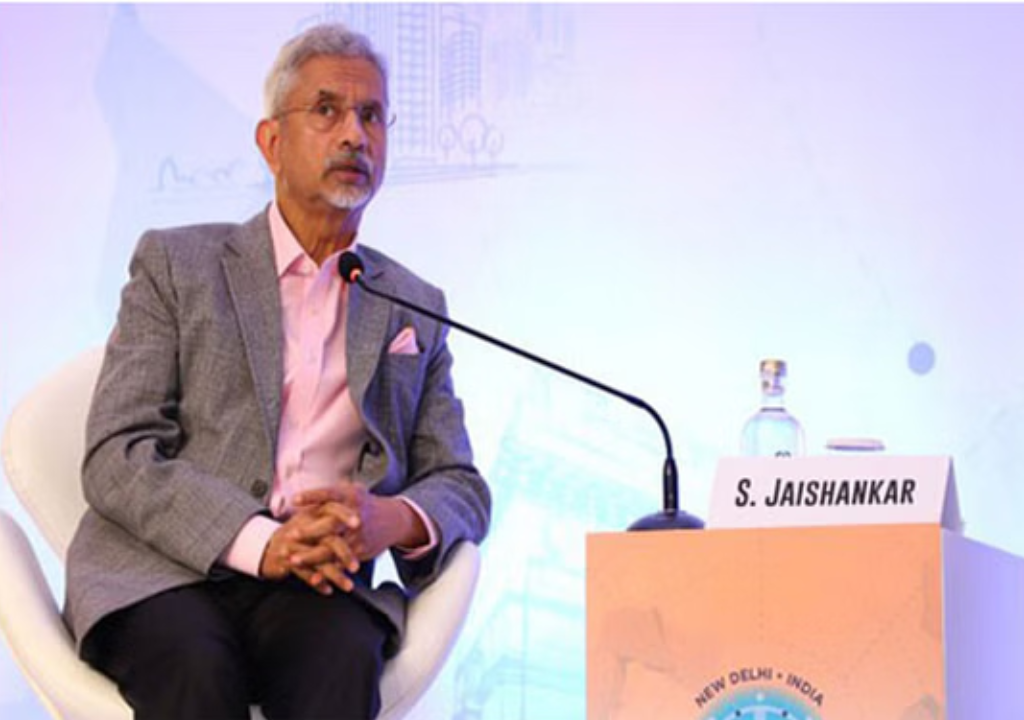In a bold and clear message aimed at European powers, External Affairs Minister Dr. S. Jaishankar asserted that India looks for partners, not preachers, highlighting New Delhi’s firm and independent foreign policy stance. Speaking at the Arctic Circle India Forum on May 4, 2025, during an interaction with former Iceland President Ólafur Ragnar Grímsson and Observer Research Foundation President Samir Saran, Dr. Jaishankar sharply critiqued Europe’s tendency to lecture others while failing to adhere to the same standards internally.
What Was the Forum About?
The Arctic Circle India Forum, a global dialogue platform, was held to explore India’s engagement with Arctic affairs, geopolitics, climate issues, and strategic diplomacy. India’s participation was viewed in the context of expanding its global footprint and strengthening multilateral partnerships amid a rapidly shifting world order.
During the conversation, the tone took a geopolitical turn when Dr. S. Jaishankar was asked about India’s expectations from Europe. His response was emphatic and assertive—setting the tone for India’s new-age diplomacy.
What Did Dr. S. Jaishankar Say?
Dr. S. Jaishankar’s reply was both pointed and layered with subtle diplomatic criticism. He stated:
“When we look at the world, we look for partners, we don’t look for preachers, particularly preachers who don’t practise at home what they preach abroad.”
This remark underlines India’s growing discomfort with Western double standards, especially from European nations that often attempt to advise or influence India’s policy decisions, yet fail to hold themselves to similar scrutiny.
He added that some parts of Europe are still “struggling” to recognize this shift in global power dynamics. While acknowledging that a few European countries have begun to evolve in their understanding, he emphasized that a genuine partnership must be built on mutual interest, sensitivity, and realism.
Links Suggested: India-Sri Lanka Relations : 5 Strategic Wins for Both Nations
Geopolitical Context of His Remarks
Dr. S. Jaishankar’s comments arrive at a critical juncture:
- Donald Trump’s return to power in the U.S. has led to renewed geopolitical recalibrations globally.
- The Pahalgam terror attack has heightened India’s national security concerns.
- India’s firm stance against Pakistan has once again brought its security-first foreign policy into sharp focus.
- Ongoing tensions related to India’s import of Russian oil amid Western sanctions during the Russia-Ukraine war continue to draw criticism from European capitals.
Dr. S. Jaishankar addressed this hypocrisy in detail. While Europe justified its own energy deals with Russia during the war, it criticized India for doing the same. He explained that India cannot be expected to sacrifice its energy security and economic stability to align with Western narratives.

India’s Strategic Autonomy
India’s foreign policy under Prime Minister Narendra Modi has increasingly emphasized strategic autonomy—the right to make decisions based on national interest rather than external pressures. Dr. Jaishankar highlighted this in his remarks, defending India’s decision to continue importing Russian oil.
He stated:
“Europe has the right to make its choices. But to then expect India to act differently, to disregard our own people’s fuel needs and inflationary pressures, is not reasonable.”
India, he added, is open to building meaningful international relationships but not at the cost of domestic well-being. His remarks reflect the principle that India will not bow to pressure if it goes against the welfare of its own people.
Criticism of Europe’s Double Standards
In one of his most quoted comments from previous forums, Jaishankar once said:
“Europe must grow out of the mindset that Europe’s problems are the world’s problems, but the world’s problems are not Europe’s problems.”
This recurring theme in Jaishankar’s speeches points to India’s frustration with the selective attention and inconsistent global engagement of some European powers. Issues like climate change, vaccine equity, and terrorism often see differing European attitudes depending on whether the impact is domestic or global.
India’s New Diplomatic Language
Dr. S. Jaishankar’s strong language reflects a new confidence in Indian diplomacy—one that does not shy away from asserting India’s perspective on the global stage. His tone is not just reactive but strategically proactive, aimed at reframing how India is perceived.
This approach includes:
- Advocating for fairness in global energy trade, especially amid geopolitical sanctions.
- Calling for equal partnership in multilateral frameworks like BRICS, SCO, and G20.
- Promoting South-South cooperation over dependency on Western frameworks.
- Emphasizing that values-based diplomacy must be consistent across regions.
What Does This Mean for India-Europe Relations?
India and the European Union share strong trade and cultural ties. However, the relationship has seen friction on several counts:
- Climate goals, where India seeks equitable responsibilities.
- Data protection and technology transfer, where India resists unilateral impositions.
- Global South representation, where India advocates for reforms in multilateral institutions like the UN Security Council.
Jaishankar’s statement signals that Europe must engage with India on equal terms, respecting its sovereignty, decisions, and domestic priorities. It also means India will welcome cooperation, not conditionality.
Looking Ahead
As the world becomes more multipolar, India’s foreign policy is increasingly guided by the principles of strategic clarity, national interest, and equal partnership. Dr. Jaishankar’s remarks at the Arctic Circle India Forum are a reaffirmation of this doctrine.
India will continue to engage with Europe and the West—but it expects dialogue, not dictates; collaboration, not criticism. For future relations to thrive, there must be respect for diverse viewpoints, mutual interests, and a shared understanding of global responsibility.
Conclusion
Dr. S. Jaishankar’s statement, “We look for partners, not preachers,” encapsulates the core of India’s modern diplomatic philosophy. At a time when global politics is shifting, India is not seeking validation from the West—it is offering cooperation on equal footing. His comments serve as both a warning and an invitation: India is open to partnership, but not to patronization.
By voicing this assertive yet balanced stance, Dr. Jaishankar has once again demonstrated that India’s global role is not just emerging—it is self-defined.

